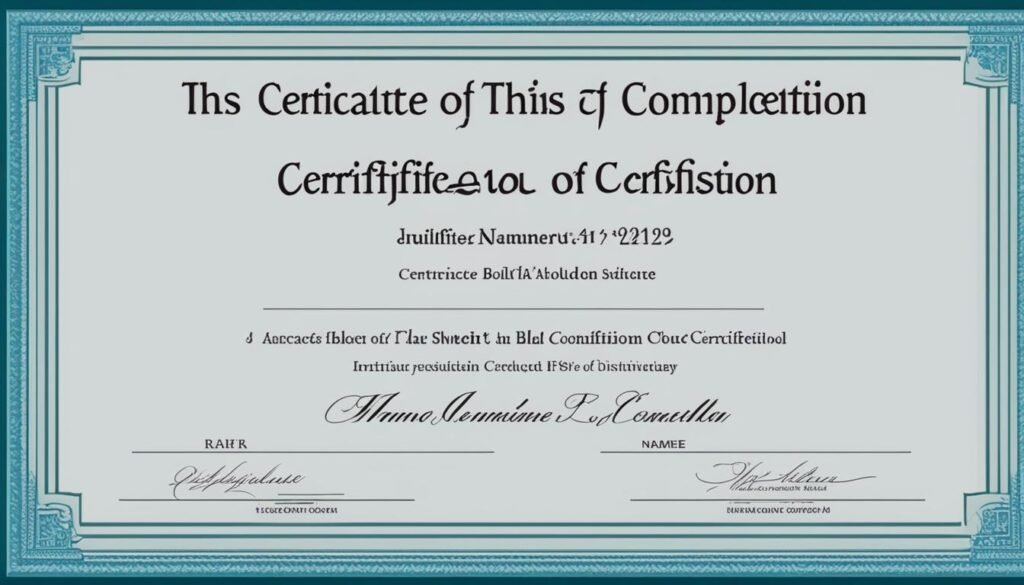Massive Open Online Courses (MOOCs) have revolutionized the way education is delivered, providing accessible and flexible learning opportunities for individuals around the world. These online courses, also known as MOOCs, are accessible to all individuals for free and are delivered via the internet. They offer a virtual classroom experience, allowing learners to participate in remote education from the comfort of their own homes.
MOOCs provide a self-paced learning experience, allowing learners to study at their own convenience. These courses are offered by universities, companies, and organizations, and typically include pre-recorded video lessons, readings, assessments, and discussion forums.
Learners can enroll in MOOCs on various platforms and start the courses at different times, depending on the course’s schedule. MOOCs can range in length from 1 to 16 weeks, offering flexibility to learners with different time commitments.
If learners successfully complete a MOOC, they can earn certificates of completion to showcase their achievements. These certificates can be a valuable addition to resumes and can demonstrate a commitment to continuous learning.
Key Takeaways:
- MOOCs are online courses accessible to all individuals for free.
- They provide a flexible and self-paced learning experience.
- MOOCs are offered by universities, companies, and organizations.
- Learners can earn certificates of completion if they pass the courses.
- MOOCs offer a wide range of subjects and can be taken to switch careers, gain a promotion, improve job prospects, or for personal enrichment.
What are MOOCs and who makes them?

Massive Open Online Courses (MOOCs) are online courses that aim to teach specific subjects and are accessible to all individuals for free. While universities have been some of the pioneers in the MOOC movement, companies and organizations also contribute to the creation of these courses. Prominent universities like Stanford, MIT, and Harvard offer MOOCs, delivering high-quality education through virtual classrooms. Additionally, companies like Microsoft and Google, as well as organizations like IEEE and the Linux Foundation, have recognized the value of MOOCs and produce their own courses.
MOOCs are made accessible to learners through course providers that act as platforms for distributing the courses. These platforms host a wide range of MOOCs, making education more accessible and allowing learners to choose courses that align with their interests and goals. Learners can explore various subjects and gain knowledge from reputable institutions, companies, and organizations. The diversity in the creators of MOOCs ensures that learners can access a wide range of expertise and perspectives.
An Introduction to Massive Open Online Courses (MOOCs)
Massive Open Online Courses (MOOCs) have revolutionized online learning by providing individuals with accessible and flexible educational opportunities. These online courses are designed to be self-paced, allowing learners to study at their own convenience and comfort. MOOCs offer a wide range of subjects and are created by universities, companies, and organizations, ensuring a diverse and comprehensive learning experience.
MOOCs work by providing course materials through online platforms, making them easily accessible to learners. These materials typically include video lectures, readings, and interactive learning modules. Learners can access the course materials and study at their own pace, fitting their education around their busy schedules. Some MOOCs allow learners to start at any time, while others follow a specific schedule, providing structure for those who prefer a more guided learning experience.
Considering the time commitment required for a MOOC is essential before enrolling. The length of a MOOC can vary, with courses ranging from just 1 week to as long as 16 weeks. Learners should carefully review the estimated time commitment mentioned in the course description to ensure they can dedicate the necessary time to complete the course. It’s important to note that the time commitment may vary depending on the individual’s prior knowledge of the subject and their learning style.
How are learners assessed in MOOCs?
Assessments play a crucial role in measuring learners’ progress and understanding in MOOCs. Various types of assessments are used to evaluate learners’ knowledge and skills throughout the course. Auto-graded quizzes are one common form of assessment in MOOCs, allowing learners to submit their answers and receive immediate feedback. These quizzes not only help learners gauge their understanding of the course material but also provide valuable insights to instructors on the effectiveness of their teaching methods.
Another assessment method utilized in MOOCs is peer-feedback assignments. Learners are often required to review and evaluate their peers’ work based on specific rubrics. This not only encourages collaboration and active participation but also provides learners with diverse perspectives and feedback to improve their own work. The performance in these assignments may contribute to the overall course grade, fostering a sense of community and engagement in the learning process.
It’s important to note that instructors do not personally grade learners’ work in MOOCs. Instead, automated systems and peer evaluations are used to ensure fairness and scalability. This allows for a large number of learners to enroll in MOOCs and receive feedback on their progress, making the evaluation process more efficient and accessible.
Key Points:
- Auto-graded quizzes provide immediate feedback and help learners assess their knowledge.
- Peer-feedback assignments foster collaboration and provide diverse perspectives.
- Instructors do not personally grade learners’ work; automated systems and peer evaluations are employed.
Can learners earn credentials through MOOCs?

One of the benefits of completing a MOOC is the opportunity to earn a certificate of completion. These certificates serve as tangible proof of your accomplishment and can be a valuable addition to your resume or professional profile. While some MOOCs offer certificates for free, others may require payment.
If you opt for a paid certificate, you may be asked to verify your identity through a process called ID verification. This typically involves submitting a picture and a government-issued ID to confirm that you are the individual who completed the course. ID verification helps maintain the integrity of the certification process and ensures that the certificate holds value in the eyes of potential employers or educational institutions.
It’s important to note that not all MOOCs offer certificates, and the availability of certificates may vary depending on the course and platform. Before enrolling in a MOOC, it’s recommended to review the course details to understand the certificate options and any associated costs. Some platforms also offer free trial periods, allowing learners to explore the course content before deciding to pursue a certificate.
Types of Certificates
- Free Certificates: Some MOOCs offer free certificates of completion to learners who successfully finish the course requirements. These certificates validate your achievement, but they may not hold the same weight as paid certificates in terms of recognition.
- Paid Certificates: Paid certificates often involve a fee and may require ID verification. These certificates demonstrate your commitment to learning and can provide a competitive edge in the job market or when applying for further education.
- Specialization Certificates: Some MOOCs offer specialization certificates, which indicate mastery of a specific subject or skillset. These certificates are typically earned by completing a series of related courses.
- Microcredentials: In addition to traditional certificates, some MOOCs offer microcredentials that focus on specific competencies or areas of expertise. These microcredentials can be a way to highlight your skills and knowledge in a targeted field.
Whether you choose to pursue a certificate or not, the knowledge and skills gained from completing a MOOC can have a significant impact on your personal and professional growth.
The Costs Associated with MOOCs

When considering enrolling in a Massive Open Online Course (MOOC), it’s important to understand the potential costs involved. While many MOOCs are free to audit, meaning you can access course materials such as videos, readings, and forums without any payment, some components may be hidden behind paywalls. These paywalls typically apply to graded assignments or additional features offered by the course provider. If you choose to pay for enrollment, you’ll gain access to all course content, including paywalled elements and the opportunity to earn a certificate of completion.
It’s worth noting that the cost of paid enrollment in a MOOC can vary depending on the course and platform. Some MOOC providers offer financial aid or scholarships to make courses more accessible to learners. These financial assistance options can provide opportunities to access MOOCs for free or at reduced rates for individuals who may have financial constraints. When deciding whether to pursue paid enrollment, it’s essential to consider your budget, the value you’ll gain from the course, and the potential benefits a certificate may bring to your educational or career goals.
Overall, MOOCs provide a range of enrollment options to accommodate learners with different preferences and financial situations. Whether you choose to audit a course for free or invest in paid enrollment, MOOCs offer flexible and affordable educational opportunities, making learning more accessible to individuals worldwide.
Key Points:
- Many MOOCs are free to audit, allowing access to course materials without payment.
- Some components, such as graded assignments, may be hidden behind paywalls in MOOCs.
- Paid enrollment provides access to all course content, including paywalled elements and certificates of completion.
- MOOC platforms may offer financial aid or scholarships to make courses more accessible.
- Consider your budget, course value, and potential benefits before choosing paid enrollment or pursuing a certificate.
What do learners need to consider before taking a MOOC?

Before enrolling in a Massive Open Online Course (MOOC), learners should carefully consider their goals and motivations. MOOCs offer a wide range of subjects and can be taken for various reasons, such as career advancement, skill development, or personal enrichment. It’s essential to have a clear understanding of why you want to take a particular MOOC and what you hope to achieve by completing it.
Another crucial factor to consider is the time commitment required for the course. MOOCs are designed to be flexible and self-paced, but they still require a significant investment of time and effort. Evaluate your schedule and determine how much time you can realistically dedicate to studying each week. Keep in mind that some MOOCs have specific start and end dates, while others allow learners to start anytime.
In addition to goals and time commitment, it’s essential to assess the level of the MOOC. Courses can be introductory, intermediate, or advanced, and it’s important to choose a level that aligns with your current knowledge and skills. Taking a course that is too advanced may result in frustration, while a course that is too basic may not challenge you enough. Carefully read the course description and prerequisites to ensure that you have the necessary background to succeed.
Key Considerations:
- Define your goals and motivations for taking a MOOC.
- Evaluate your schedule and determine the amount of time you can commit to studying each week.
- Assess the level of the MOOC to ensure it aligns with your current knowledge and skills.
By carefully considering these factors before enrolling in a MOOC, you can make an informed decision and set yourself up for a successful learning experience.
Conclusion
MOOCs have revolutionized the landscape of online learning, providing individuals from all walks of life with unparalleled educational opportunities. These courses, offered by universities, companies, and organizations, have opened up new horizons for those seeking self-paced and flexible learning experiences.
With a wide range of subjects available, MOOCs empower learners to explore and expand their knowledge in a variety of fields. The convenience of online access allows individuals to study at their own pace, fitting education into their busy lives. Whether it’s to switch careers, gain a promotion, or simply satisfy a thirst for knowledge, MOOCs provide a platform for growth and development.
Furthermore, MOOCs offer the potential to earn certificates of completion, demonstrating a commitment to lifelong learning and enhancing one’s credentials. These certificates can be obtained by successfully completing the course requirements, providing learners with a tangible validation of their achievements.
In summary, MOOCs have transformed the educational landscape, offering accessible and flexible learning opportunities to individuals worldwide. The power of online learning has paved the way for personal and professional growth, making education more inclusive and empowering. The future of learning is here, and MOOCs are at the forefront of this educational revolution.
FAQ
What are MOOCs?
MOOCs, short for Massive Open Online Courses, are online courses accessible to all individuals for free. They provide a flexible and self-paced learning experience.
Who creates MOOCs?
MOOCs are created by universities, companies, and organizations. Some of the pioneers in the MOOC movement include Stanford, MIT, and Harvard.
How do MOOCs work?
MOOCs deliver course materials such as video lectures, readings, and interactive learning modules through online platforms. Learners can access these materials and study at their own pace.
How long do MOOCs take to complete?
The length of a MOOC can vary, ranging from 1 to 16 weeks. Learners should consider the estimated time commitment mentioned in the course description.
How are learners assessed in MOOCs?
MOOCs use various types of assessments such as auto-graded quizzes and peer-feedback assignments to evaluate learners’ progress. Instructors do not personally grade learners’ work.
Can learners earn credentials through MOOCs?
Yes, learners who successfully complete a MOOC may earn a certificate of completion. Some certificates are free, while others require payment and ID verification.
Are there any costs associated with MOOCs?
Many MOOCs are completely free to audit, but some components such as graded assignments may require payment. Financial aid and scholarships may be available on some platforms.
What do learners need to consider before taking a MOOC?
Learners should consider their goals, time commitment, and the course level (introductory, intermediate, or advanced) to ensure a successful learning experience.
Source Links
- https://www.classcentral.com/help/moocs
- https://www.techtarget.com/whatis/definition/massively-open-online-course-MOOC
- https://modernlearners.com/moocs-an-introduction/


